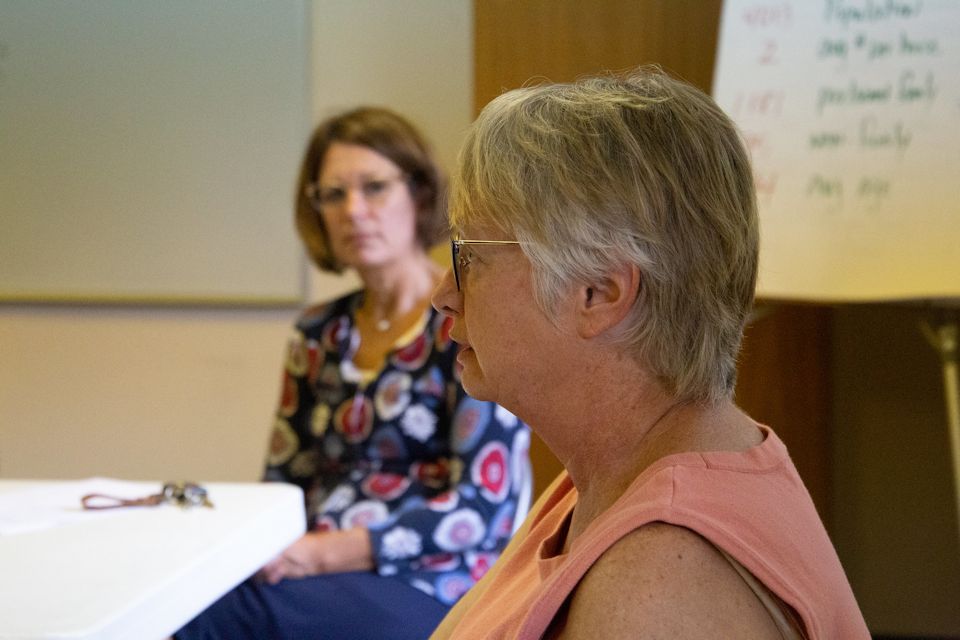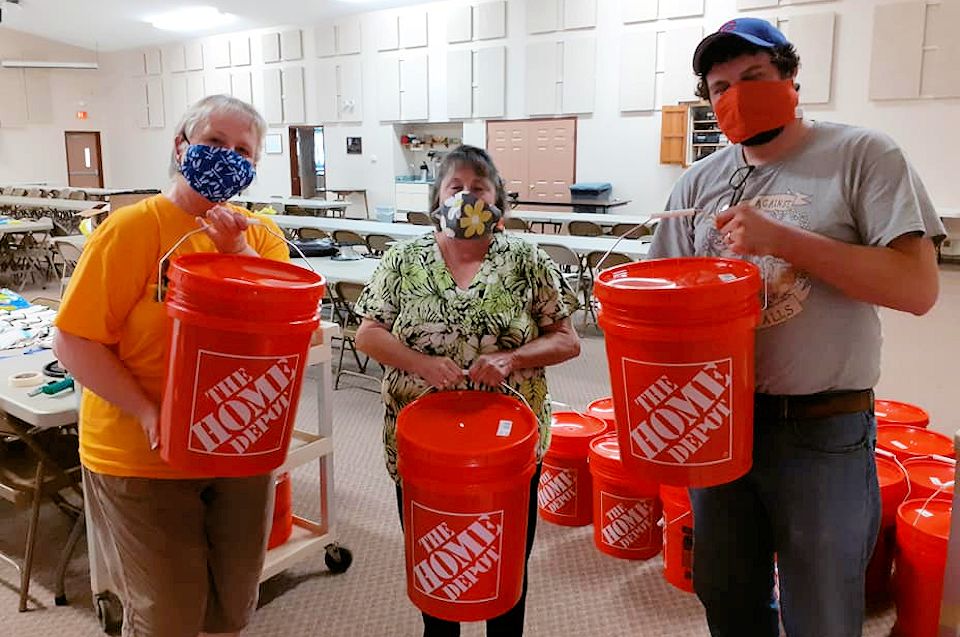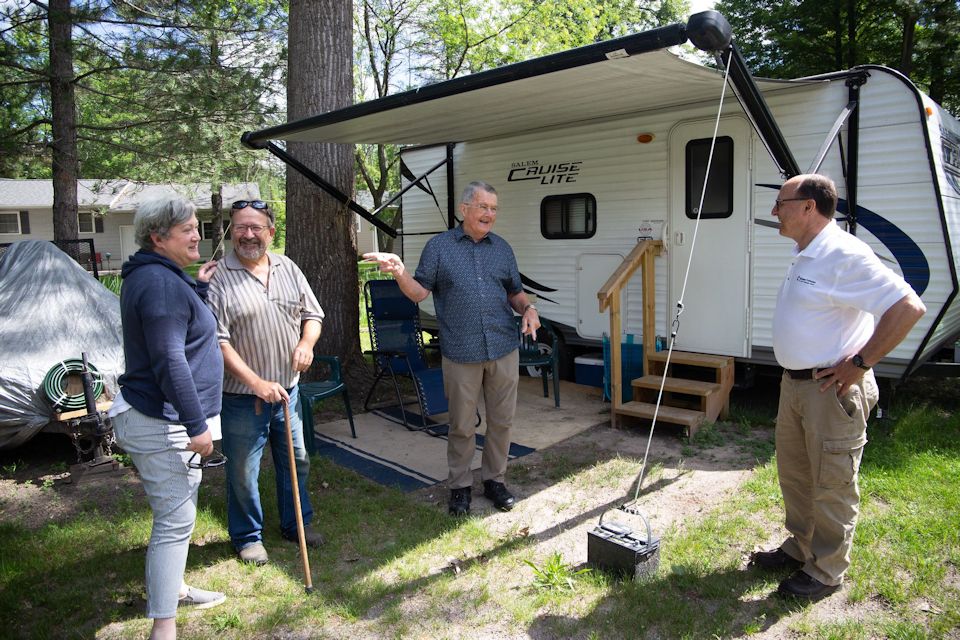Flood survivors living in Iosco and Arenac counties are now being helped by a $600,000 grant from the United Methodist Committee on Relief. Long-term recovery from the 2020 flood continues.
KAY DEMOSS
Senior Content Editor
LANSING MI…For those in Arenac and Iosco counties still struggling after the May 2020 torrential rains and flooding, more relief is on the way. The United Methodist Committee on Relief (UMCOR) has issued a $600,000 grant to the Michigan Conference for direct assistance to those still working to recover from the flood. “This grant is life-changing for people in those counties,” said Nancy Money, Director of Community Impact for Midland County United Way. She added, “It will make a huge impact. These people’s needs would not be met if it wasn’t for these UMCOR dollars.”

Money explains that early assistance to the region focused on Midland, Saginaw, and Gladwin counties. “There were no Long Term Recovery Group or community dollars to help those folks in Iosco and Arenac. So, their recovery has been a little bit behind.” The UMCOR funds will purchase water heaters and furnaces, rebuild damaged homes, pay for excavation, and more.
The latest UMCOR grant was in addition to an initial $10,000 that supported Early Response Teams during the clean-up phase in May 2020, after 10,000 persons were evacuated from their homes. Five case managers employed by the Michigan Conference have been on the job since August of 2020 helping those persons reach “a new normal.” They are Carla Long and Pamela Wilson (Gladwin County), Madeline Claveloux (Sanford County), Anne Wortley and Raeagan Schultz (Midland County). A sixth case manager, Laura Ault, is now working with survivors in Iosco and Arenac counties.
The first year of case management was funded by UMCOR ($100,000), the Midland Area Community Foundation ($100,000), and Saginaw Community Foundation ($50,000). Now funding is provided by the Federal Emergency Management Agency (FEMA), channeled through the state government to The Michigan Conference, which serves as the provider. “UMCOR was instrumental in hiring the case managers in the Great Lakes Bay Region,” Money remarks. “They invested early. That demonstrated to Community Foundations the need and impact case management can have.”
In addition to her position with the Midland County United Way, Money serves as program manager for the FEMA Disaster Case Management Program in the Great Lakes Bay Region. The person responsible for oversight of the long-term recovery effort of the Michigan Conference is Katie Vokal. Vokal was trained by UMCOR to do case management in what was called the “100 Year Flood” that struck Midland, Isabella, and Bay counties in June 2017. The “500 Year Flood of 2021” called her back into service, along with Anne Wortley.

Michigan Conference case managers help connect impacted households with a variety of federal, state, and local dollars, human service resources, volunteer support, and in-kind donations. The case managers also provide emotional support and help navigate an often complex and bureaucratic recovery process. UMCOR funded case managers are part of the Long-Term Disaster Recovery Group, a broad coalition of area philanthropic organizations, nonprofits, businesses, government, faith community, civic groups, and schools. Nancy Money estimates that 416 units (families and individuals) have been assisted through case management in the 18 months since the disaster.
Money observes, “UMCOR knows that we will utilize the dollars to make the most impact.” She says the role of the United Methodist Committee on Relief has changed somewhat in recent years. “It used to be UMCOR was first in and last out. Now, they are early in and last out,” Monday explains. “While they still send in Flood Buckets in the early hours, their primary niche is disaster case management and long-term recovery.”
“Recovery from a catastrophic disaster can take a very long time,” said Bishop David Bard. “We are pleased that UMCOR has recognized the continuing need to support those in Arenac and Iosco counties still struggling to find help and hope.”
Last Updated on September 20, 2022

